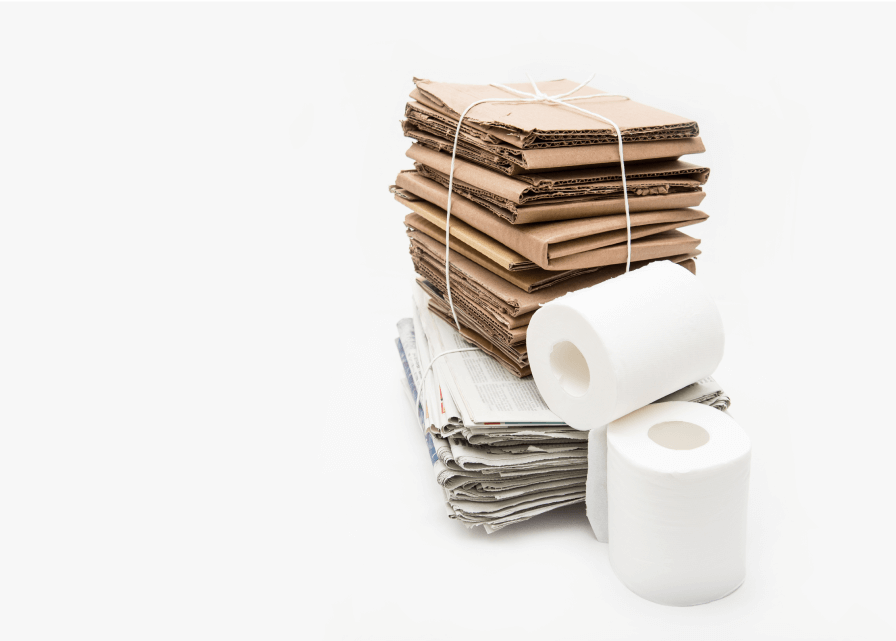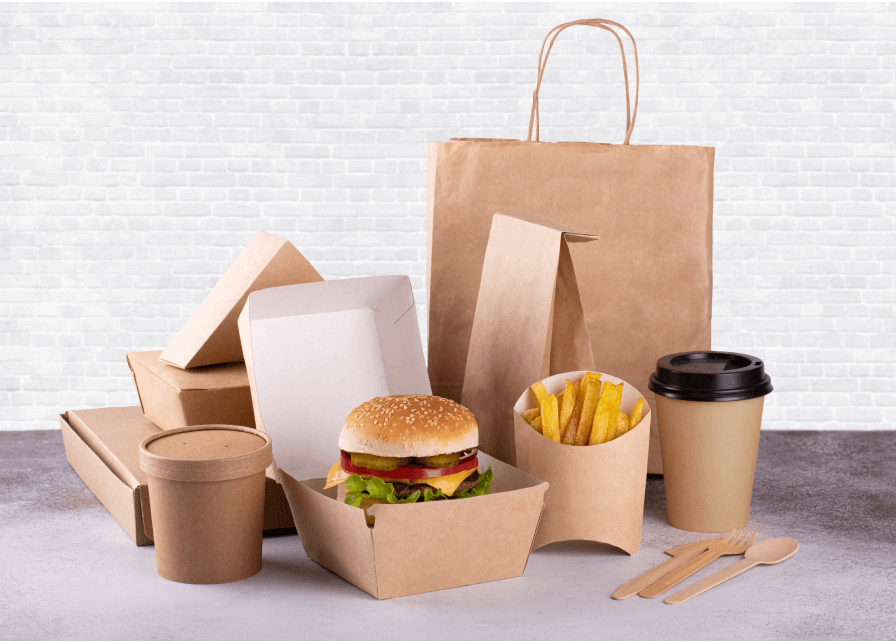
SUSTAINABILITY
Sustainable Product Development

Products Contributing to Environmental Sustainability and Safety
The CHEMIPAZ Group has established criteria for designating sustainable products as Environmental Strategic Products. This portfolio includes products that not only benefit the environment but also support our customers’ eco-friendly product development and workplace safety initiatives.
Promoting Recycling

Japan maintains one of the world’s highest paper recycling rates, with most used paper being recycled into new paper products for everyday use. Papermaking chemicals play a crucial role in making this high level of recycling possible.
As paper undergoes repeated recycling, pulp fibers gradually degrade, making it challenging to maintain paper strength when using high percentages of recovered paper. Dry strength agents address this challenge by reinforcing hydrogen bonds between pulp fibers, enabling the production of strong paper even with high recovered paper content.
These essential chemicals work behind the scenes, supporting Japan’s successful paper recycling system
Related
products
Plastic Reduction Initiatives

With growing concerns over marine plastic pollution and microplastics, paper is increasingly recognized as a sustainable alternative to plastic materials.
The SEIKOAT™ Series comprises water-based coating agents that enhance paper functionality, supporting the transition from plastic to paper-based solutions. Unlike plastic-paper composites such as polyethylene-laminated paper, these coatings preserve paper’s natural recyclability, contributing to circular economy initiatives.
Oil-resistant paper, traditionally treated with fluorine-based agents, is essential for packaging oily and fatty foods to prevent oil penetration. However, growing concerns about the health and environmental impacts of organic fluorine compounds have created a demand for alternative solutions.
Our SEIKOAT™ Series includes non-fluorinated oil-resistant coating agents that combine high biomass content with superior oil resistance, offering a sustainable alternative for greaseproof paper applications.
Reduced Energy Consumption During Use

As climate change caused by global warming intensifies, nations worldwide are accelerating their energy conservation efforts and promoting energy-efficient technologies to reduce greenhouse gas emissions, including CO2.
We develop products that enable our customers to achieve significant energy savings in their operations.
For example, our biofilm control agents contribute to improved energy efficiency by preventing and removing biofilms that decrease heat exchanger performance in air conditioning and refrigeration systems. We are also developing silver nanowires that feature high electrical conductivity, excellent optical transparency, and superior flexibility. These properties make them promising materials for flexible touch panels and next-generation solar cell electrodes, potentially contributing to a carbon-neutral society.
Related
products
Low VOC & Low Toxicity Solutions

Materials that emit volatile organic compounds (VOCs) are often used in the chemical industry. VOCs not only cause photochemical smog and other air pollution; they can also have a negative impact on the health of workers exposed to them. Given this, there is growing demand for products that use low-VOC, low-toxicity materials and for those that do not use organic solvents.
Total Acrylic Polymer Industry Corporation’s UV-curable pressure sensitive adhesives and SEIKO PMC’s resins for water-based inks do not use organic solvents, are environmentally friendly, and ensure customer safety.
In addition, KJ Chemicals Corporation sells KJCMPA®-100, a solvent with high solubility for poorly-soluble materials (polyimide and polyamide) while showing no reproductive toxicity.
Related
products
Environmentally Friendly Materials

With the increasingly serious issues of global warming and environmental pollution, the development and use of environmentally friendly materials is an urgent necessity as we work to achieve a sustainable society.
One such environmentally friendly material garnering attention is cellulose nanofiber (CNF). This is made from wood, which is a recyclable material. CNF is an extremely fine fiber made by defibrating plant fibers to the nano level. CHEMIPAZ Corporation offers to the market STARCEL™, in which CNF is dispersed in resin or rubber. This product can be compounded with resin or rubber according to the application and desired physical properties, and then molded for use. By compounding STARCEL™, various properties can be imparted to resins and rubbers. We expect this to be used in a wide range of fields, such as automobiles, home appliances, sports and leisure, building materials, and daily necessities.
Furthermore, in the field of resins for inks, where solvent-based products have traditionally been mainstream, we now offer resins for water-based inks, as well as resins for biomass inks that can incorporate biomass components into water-based inks, contributing to an increased biomass ratio in our customers’ products.
Related
products
Standards for Food Packaging Additives

Packaging materials that may come into direct contact with food are subject to strict standards to ensure food safety. Countries worldwide have certification bodies that verify the safety of additives used in food packaging materials. To meet our customers’ stringent safety requirements, CHEMIPAZ offers multiple products that comply with various international standards, including the US FDA regulations, German BfR Recommendations, and Chinese GB 9685-2016 Standard.

